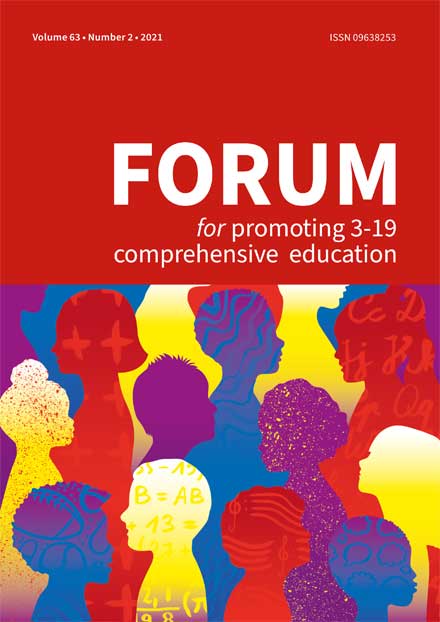
The impact of research evidence on education policy: how Members of Parliament respond to evidence in relation to secondary selective education
FORUM - Print ISSN 1474-7685 - Online ISSN 2047-7171
Volume 63 Number 2 (2021)
The impact of research evidence on education policy: how Members of Parliament respond to evidence in relation to secondary selective education
Alan Bainbridge, Joanne Bartley, Tom Troppe pages 161‑168
DOI: 10.3898/forum.2021.63.2.14
Abstract
A detailed analysis of Hansard transcripts was undertaken to explore the dialogue used in parliamentary debates and committee meetings where reference was made to grammar schools between October 2015 to March 2019. During this period, the first new grammar school for fifty years had been approved, along with the establishment of the £50 million selective school expansion fund. Detailed qualitative analysis highlighted the widely disproportionate use of the term ‘good’ in relation to grammar schools. It is argued that ‘good’ instead of ‘outstanding’ or ‘excellent’ is chosen in relation to grammar schools as ‘good’ has moral overtones that go beyond reported educational standards. Proportionately, the number of comprehensive schools rated good or outstanding would need to be referred to in conjunction with ‘good’ 6698 times, not the forty-nine times this actually happened. Campaigners for comprehensive education need to reclaim the discourse of ‘goodness’ for all schools.
To cite this article
Alan Bainbridge, Joanne Bartley, Tom Troppe (2021) The impact of research evidence on education policy: how Members of Parliament respond to evidence in relation to secondary selective education, FORUM, 63(2), 161-168 . https://doi.org/10.3898/forum.2021.63.2.14
